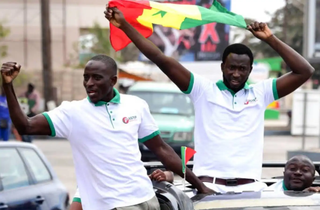More than seven million Senegalese citizens are eligible to vote on Sunday, with polls running from 8:00 AM to 6:00 PM (GMT).
President Faye, who assumed office in March after a decisive electoral victory, campaigned on promises of economic transformation, social justice, and anti-corruption measures. However, his government’s first months have faced significant roadblocks from an opposition-controlled parliament, prompting him to dissolve the assembly in September and call for snap elections.
Faye’s governing Pastef party is widely seen as the favorite to win the election, with analysts pointing to a historical trend of Senegalese voters backing the president’s party during parliamentary races. His government’s performance has been under scrutiny, as economic challenges, including high inflation, unemployment, and a deepening debt crisis, weigh heavily on the nation.
Faye’s administration has pledged a pan-African, left-wing agenda, spearheaded by Prime Minister Ousmane Sonko. Key proposals include diversifying Senegal’s political and economic alliances, revisiting hydrocarbon and fishing contracts, and restoring what they call the country’s “lost sovereignty.” Sonko, a popular figure barred from contesting the presidency due to defamation charges, has been a driving force behind Faye’s rise.
However, the government’s inability to deliver on key promises has led to public discontent. Sonko has attributed the delays to the opposition-led parliament's refusal to pass crucial legislation, hindering the administration's ability to implement its policies.
The main opposition to Pastef comes from an alliance between the Alliance for the Republic (APR), led by former President Macky Sall, and another party. Additional competition comes from smaller coalitions, including one led by Dakar Mayor Barthelemy Dias.
Senegal is grappling with a debt crisis, with the new government revealing a budget deficit larger than previously reported. This has delayed a $1.9 billion International Monetary Fund (IMF) program, adding to the economic strain.
Despite these challenges, Mariam Wane Ly, a prominent former parliamentarian, expressed optimism for Pastef’s chances. “The campaign allowed leaders to outline their agendas, and I expect Pastef to win the majority it is seeking,” she said, noting that such a victory could address citizens’ growing frustrations.
Faye’s rise to power came amidst one of Senegal’s most turbulent election cycles in recent history. Protests erupted after then-President Sall postponed the presidential vote initially scheduled for February, leading to violent clashes and judicial interventions. The March election ultimately saw Faye, a relatively unknown candidate, clinch victory with strong support from Sonko’s popularity.
As Senegal heads to the polls, all eyes are on whether Faye’s Pastef party can secure the parliamentary majority needed to deliver on its promises and stabilize the nation’s political and economic trajectory. (ILKHA)



 Güncel
Güncel
 Güncel
Güncel
 Dünya
Dünya
 Dünya
Dünya
 Güncel
Güncel
 Röportaj
Röportaj
 Dünya
Dünya
 Dünya
Dünya
 Güncel
Güncel
 Güncel
Güncel





